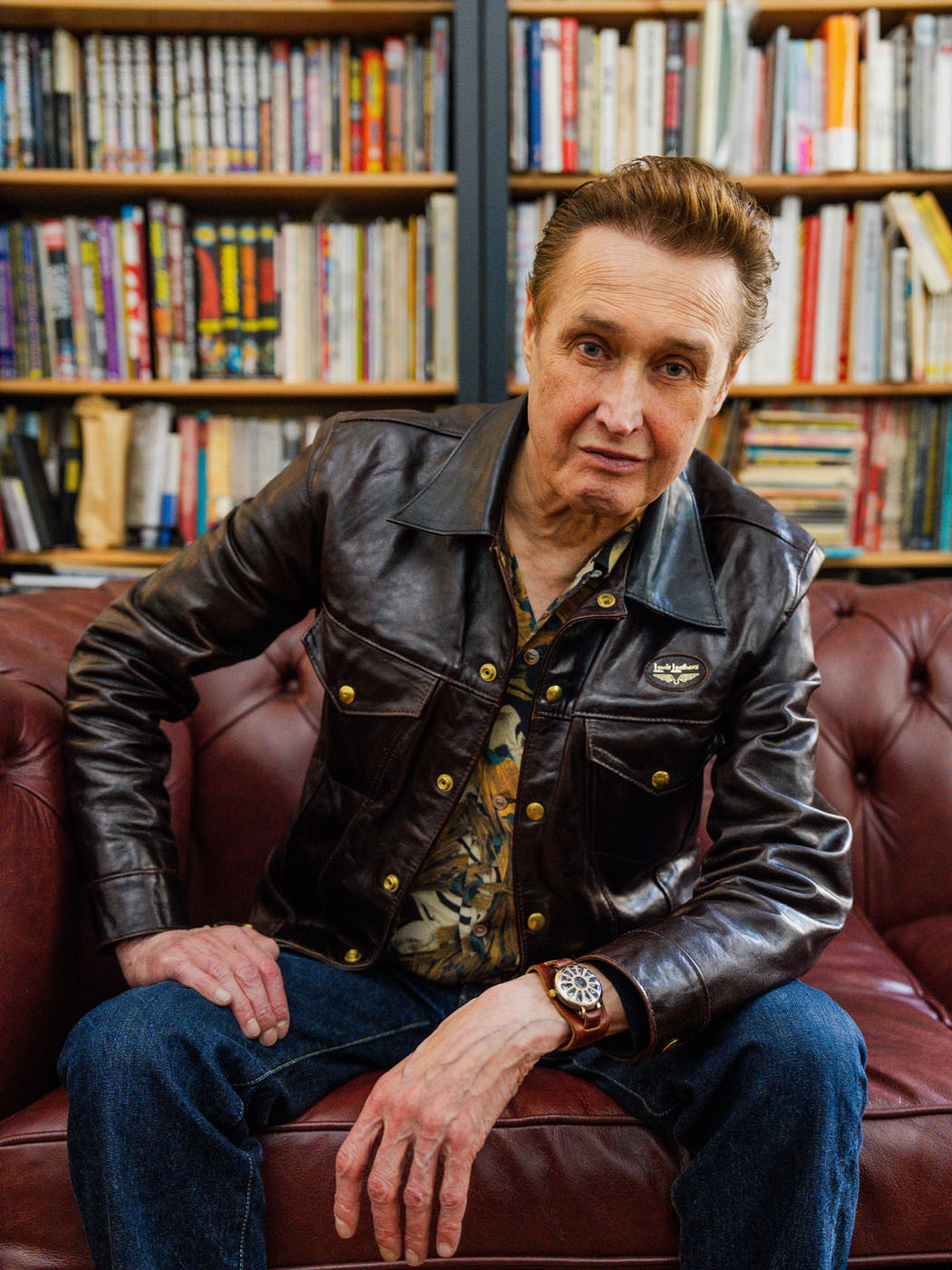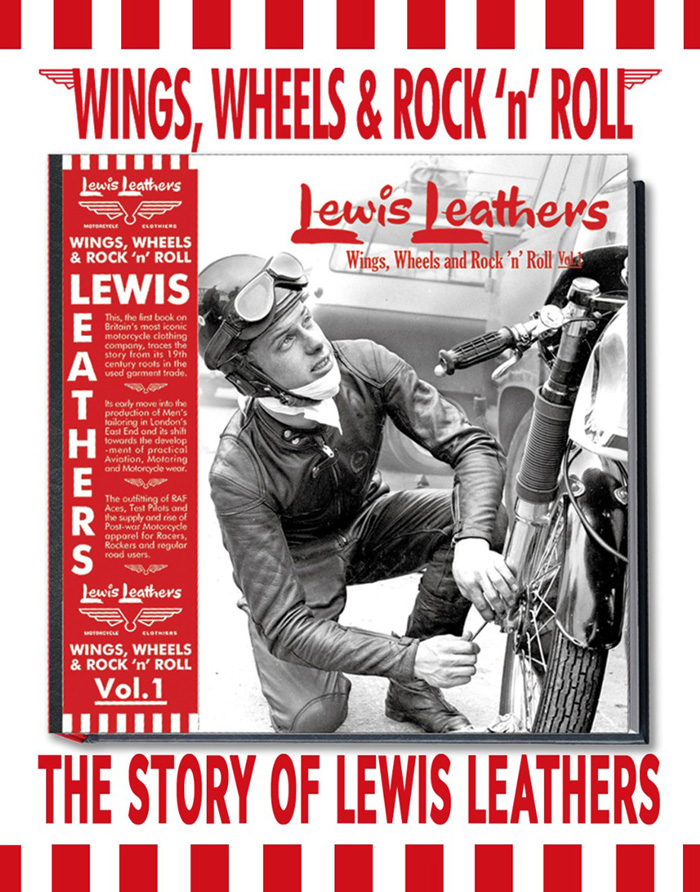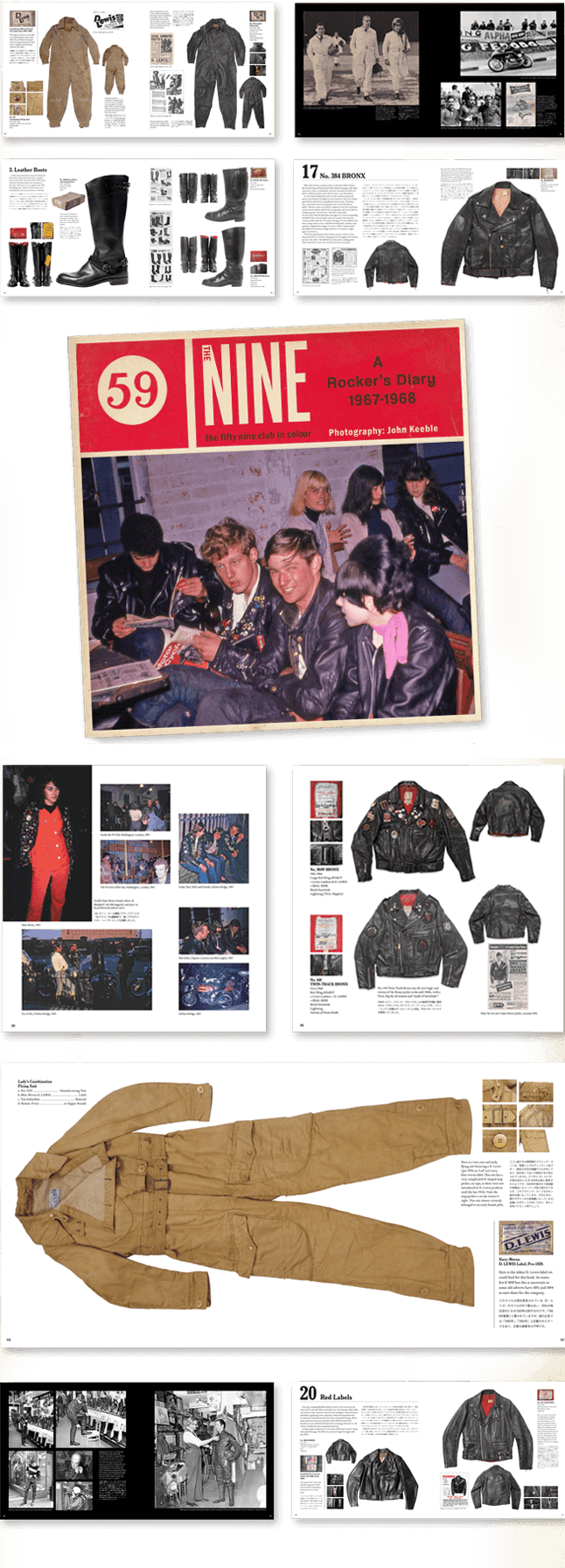Derek Harris Interview by RUDO magazine
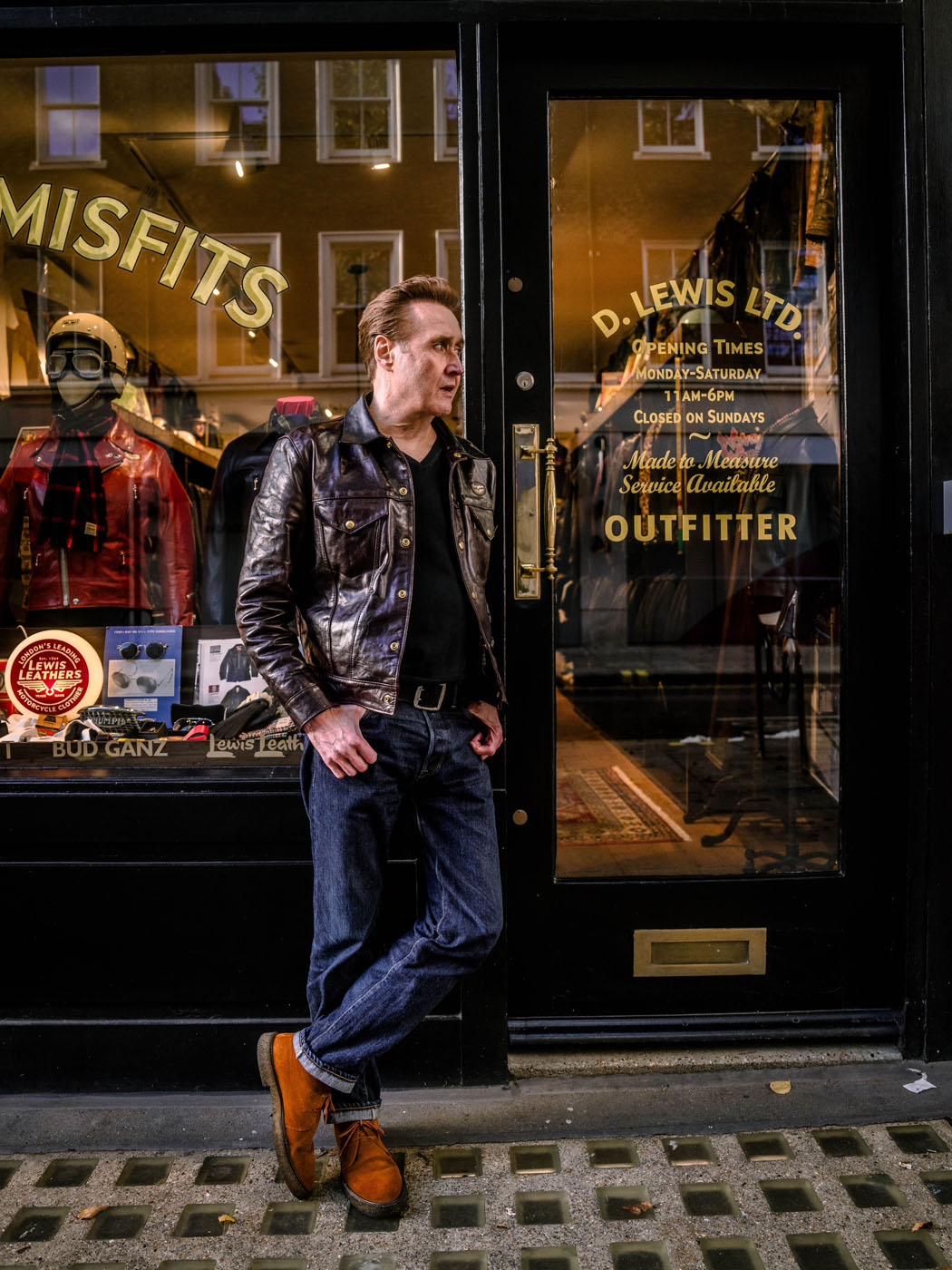
LEWIS LEATHERS – Interview with DEREK HARRIS
The pinnacle of British leatherwear at the heart of the cultural scene.
Lewis Leathers, renowned for its leather jackets that boast a distinctive British elegance and sharp silhouette, has influenced a wide range of cultures, centred especially around motorcycling. We conducted an interview at their flagship store in the UK with Derek Harris, a dedicated researcher who has studied the brand’s history for many years and now serves as its director. As a collector across various fields, he also shared a glimpse of his prized collection.
All text ©RUDO magazine JAPAN @rudo_magaz rudoweb.jp
All photos ©Lewis Leathers Saaya Nohara
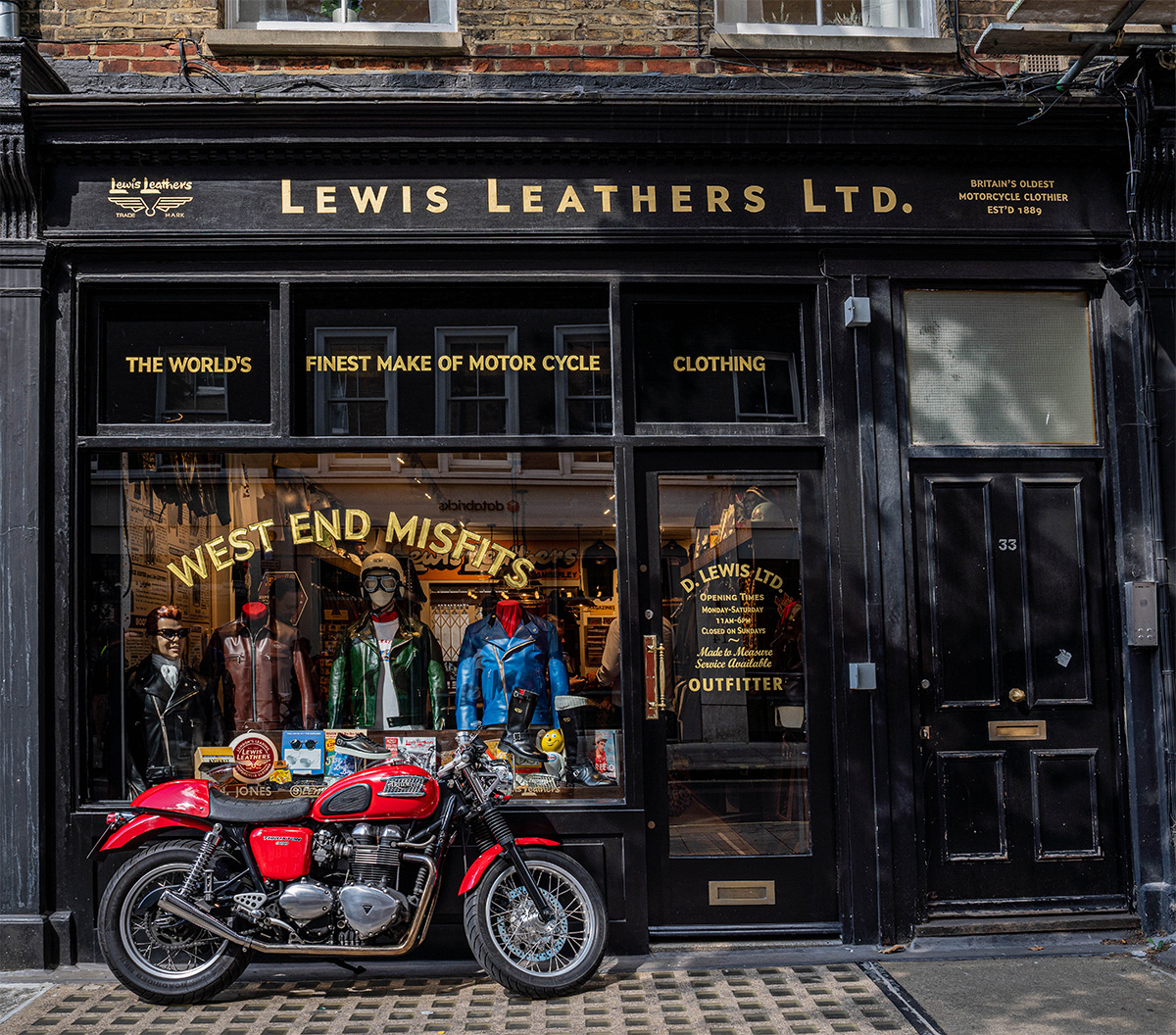
RUDO: The history and products of Lewis Leathers have been covered in detail in various places, so for this interview, we’d like to focus more on you, Derek. To start with, what kind of childhood did you have?
Derek: I grew up in a council estate in a rural town in Sussex, in the southeast of England. My friends lived nearby and we all went to school together. It was a fairly typical upbringing, really—climbing trees, running about, playing outdoors. My father worked in construction, and my mother worked at a children’s home, which is what we called the residential home for children who had been neglected or abandoned. Being the youngest, I spent quite a lot of time there with her.
RUDO: What first got you interested in fashion and vintage clothing, which you’re still fond of today?
Derek: Around the age of 17, I started finding the clothes of the time a bit dull, so I began going to second-hand shops. It wasn’t so much that I was into vintage at that point—it was more that I was a student and didn’t have much money! (laughs) In 1981, I moved to an area near Portobello Market in London, and my landlord there happened to run a military surplus shop. He used to dye military gear and jackets black and sell them. I’d bring my old clothes to him to be dyed, and that’s how I gradually got drawn into the world of vintage.
RUDO: When people think of London, they often think of punk. Were you influenced by that scene?
Derek: Some of my friends used to buy bondage gear from SEX, the shop run by Malcolm McLaren and Vivienne Westwood, but I didn’t really have the money for that sort of thing. I customised my own clothes with stencil prints and the like. I didn’t actually own many clothes that looked particularly punk. Punk was definitely in full swing when I moved to London, but I was already a bit older by then. I was more into American bands like The Cramps and Gun Club, and early New York hip-hop—I used to listen to cassette tapes of radio shows. I had a friend in New York and we’d post each other tapes we’d recorded off the radio.
RUDO: You’re a fan of vintage Wrangler and mentioned listening to American music—were you particularly drawn to American culture?
Derek: Not really—I was just on the lookout for something new. It wasn’t so much that I was into American culture itself, but I was fascinated by the exciting music coming out of the US. Punk and post-punk were big in the UK at the time, but I was more interested in finding something fresh and different. I’ve still got loads of those old cassette tapes from back then.
I remember thinking, They must be wearing Lewis Leathers.
RUDO: When did you first come across Lewis Leathers?
Derek: Back in the mid-60s, when I was a kid, I used to see little Lewis Leathers adverts in newspapers and football magazines. At the time, there were big movements like the Mods and Rockers, and they were often in the news, so I was aware of them. The estate I lived on was circular, and at weekends the Rockers would come and race their motorbikes around it or just ride about. They all wore leather jackets, and I remember thinking, They must be wearing Lewis Leathers.
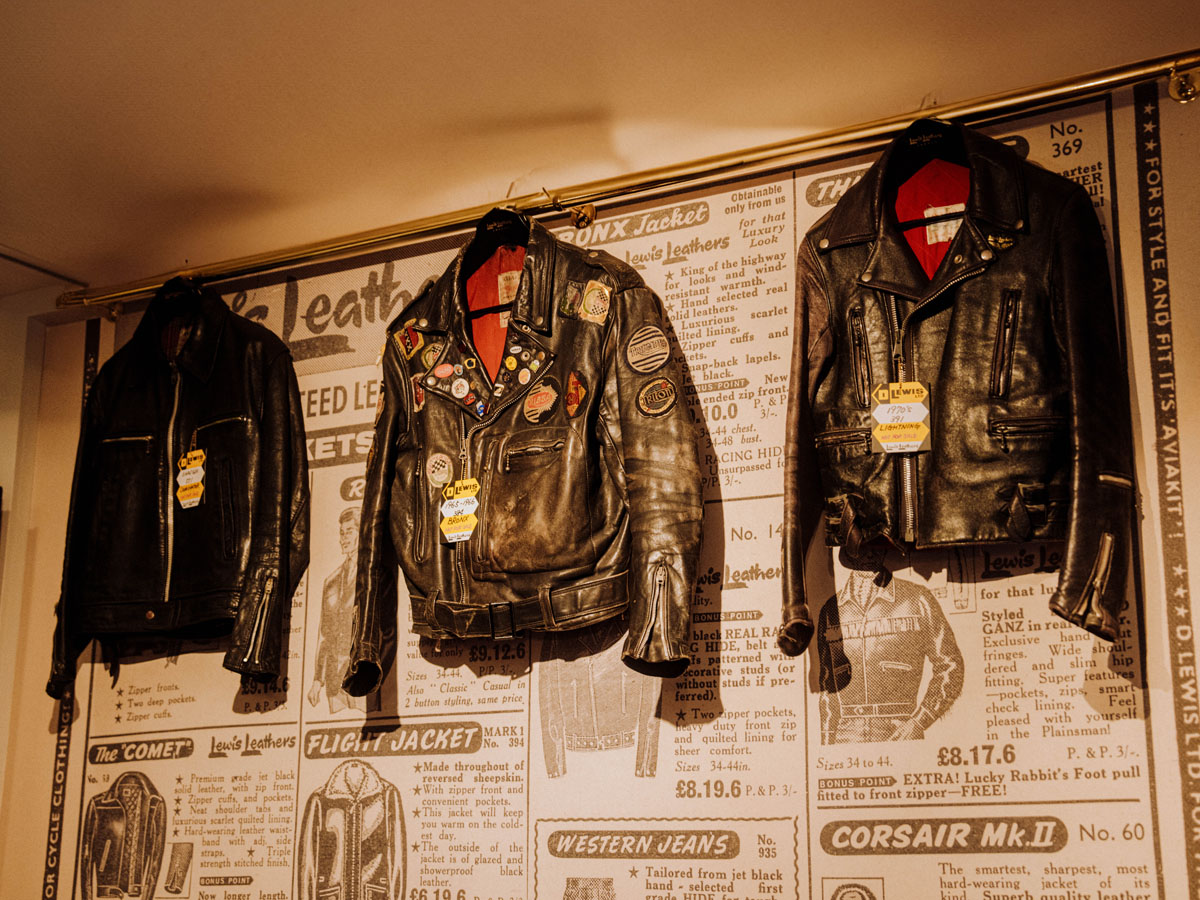
RUDO: So you actually saw the Rockers in person! Were they intimidating?
Derek: Not at all—they were just ordinary teenagers.
RUDO: Did you ever want to be like them?
Derek: I thought they looked incredibly cool and I definitely wanted to, but my mum wouldn’t allow it! (laughs) Then, about ten years later, the punk era arrived, and I saw The Clash wearing Lewis Leathers—that really struck me. Most rock bands at the time were very fashion-conscious—they wore suits, shopped on Carnaby Street, and were always dressed sharply. But The Clash wore leather motorcycle jackets.
What impressed me was that it wasn’t just about following fashion trends. They were mixing styles with a sense of history—like pairing 1950s Teddy Boy shoes with 1960s leather jackets. It had a real connection to the past.
And what really stood out was that The Clash weren’t wearing cheap leather jackets. Back then, most of what you’d find in high street fashion shops in Britain was low-quality. But they actually went to Lewis Leathers and bought proper motorcycle gear. That made a huge impression on me.
Whereas the Sex Pistols had a more styled, almost theatrical approach—often wearing very expensive or curated outfits—The Clash wore clothes that ordinary people could actually get their hands on. That was what really hit me.
RUDO: When did you get your first Lewis Leathers jacket?
Derek: It was probably in the early 1980s. The lining was completely worn out, so I bought a suit jacket, cut out the lining, and sewed it in myself. It was a vintage Corsair model. I think I’ve still got it somewhere. I’m pretty sure I painted The Cramps on the back.
RUDO: What do you think makes Lewis Leathers so special?
Derek: It’s the rich history and tradition behind it. If you trace it back to the early 20th century, when it was still called D. Lewis Ltd., they were making clothing for aviators and motorists, and from around 1924, they began producing gear for motorcyclists and racers too. During the Second World War, they even supplied the Royal Air Force.
Their designs have always been well thought out, and in more recent times, the brand has gained a following not just among bikers but also in street fashion and among musicians. These days, Lewis Leathers is even seen as a luxury brand—it’s collaborated with Comme des Garçons, for example—so it’s come to be recognised for both its style and its quality. I think that recognition has helped the brand continue to grow.
Interestingly, the company is currently thought to have been founded in 1892, but our research has uncovered evidence suggesting it may have been even earlier. Hopefully, we’ll be able to announce the official founding date sometime soon.
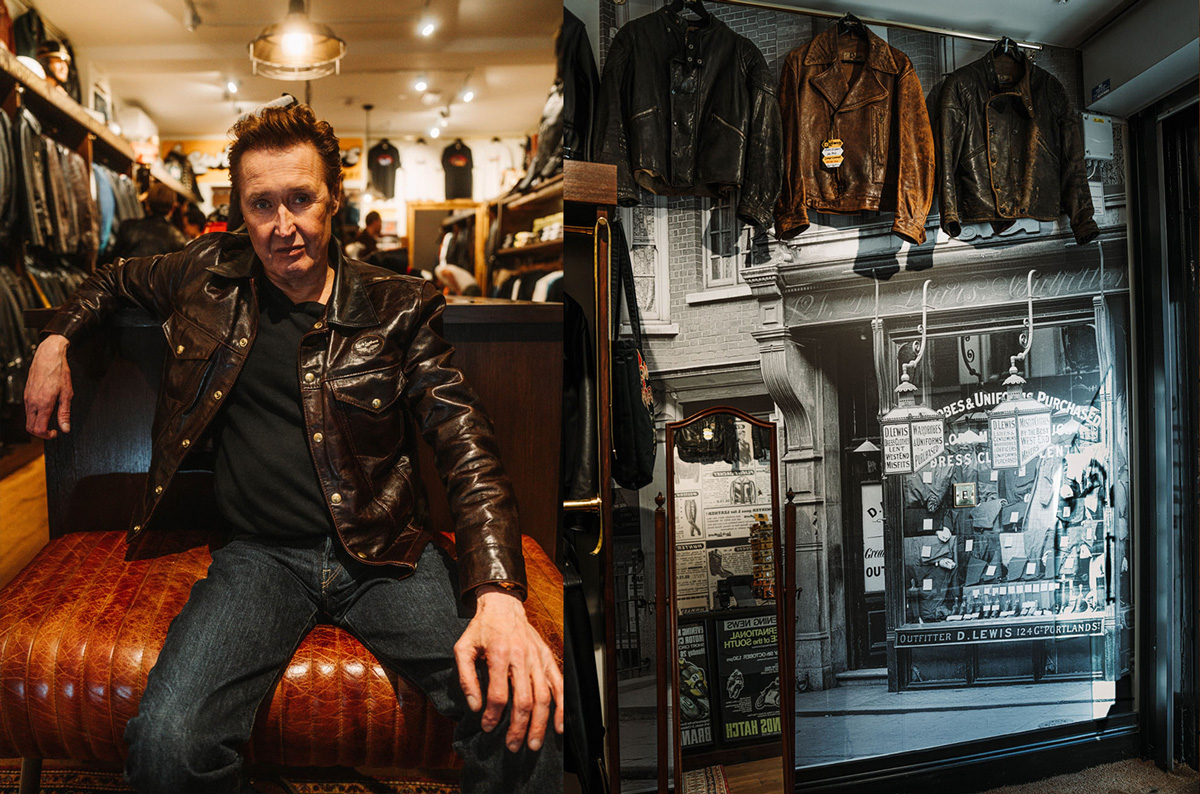
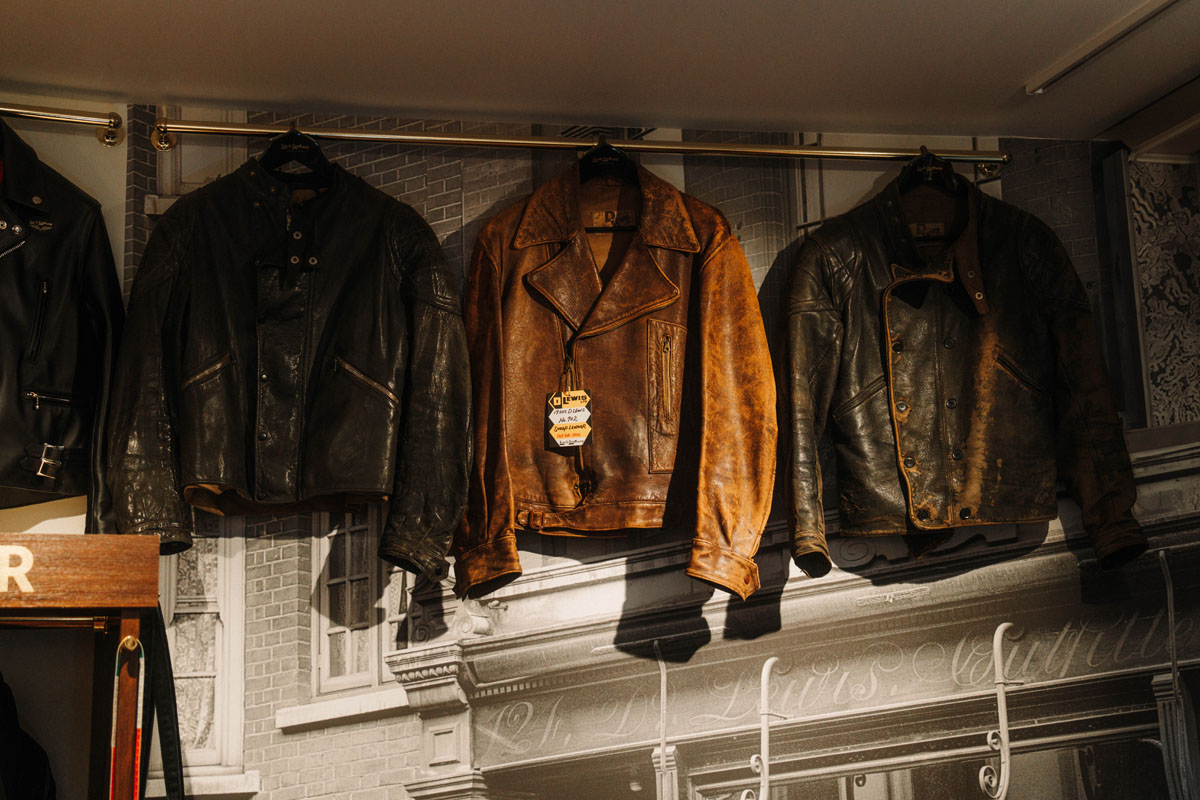
RUDO: How did you come to be involved with such a historic brand as the owner?
Derek: In 1991, I was working as a freelance consultant when a Japanese company approached me, saying they wanted to sell leather jackets and asking if I knew any good brands. I immediately said, “Lewis Leathers is the one.” At the time, it wasn’t well known in Japan at all, and even in the UK, it was only stocked at a single shop in Brooklands. Still, I bought a few samples, and the client was really taken with them, so we started selling them.
As we began introducing Lewis Leathers to the Japanese market, I felt its significance was beginning to be recognised there too—though it had long been an important brand in Britain. The more I handled it, the more I came to understand its traditional value. I started studying it properly—digging into books and archives. I even found myself advising the company’s then-owner about the history and value of the brand, pointing out how current patterns and details differed from the archive pieces. I’d bring in actual vintage jackets and explain, “This is how it should be,” and gradually got more involved.
The products at the time had strayed quite far from the designs of the ’60s and ’70s. The brand had changed hands three or four times over just six years, and things had become a bit of a mess—single-panel backs were replaced with multiple panels to save on leather and manufacturing costs, cheap zips were being used, and the linings had gone from cotton to polyester.
Being in Japan at that time also gave me a front-row seat to the denim revival, when brands and companies were meticulously recreating vintage denim with incredible attention to detail. That inspired me—I thought, Lewis Leathers should be doing the same thing.
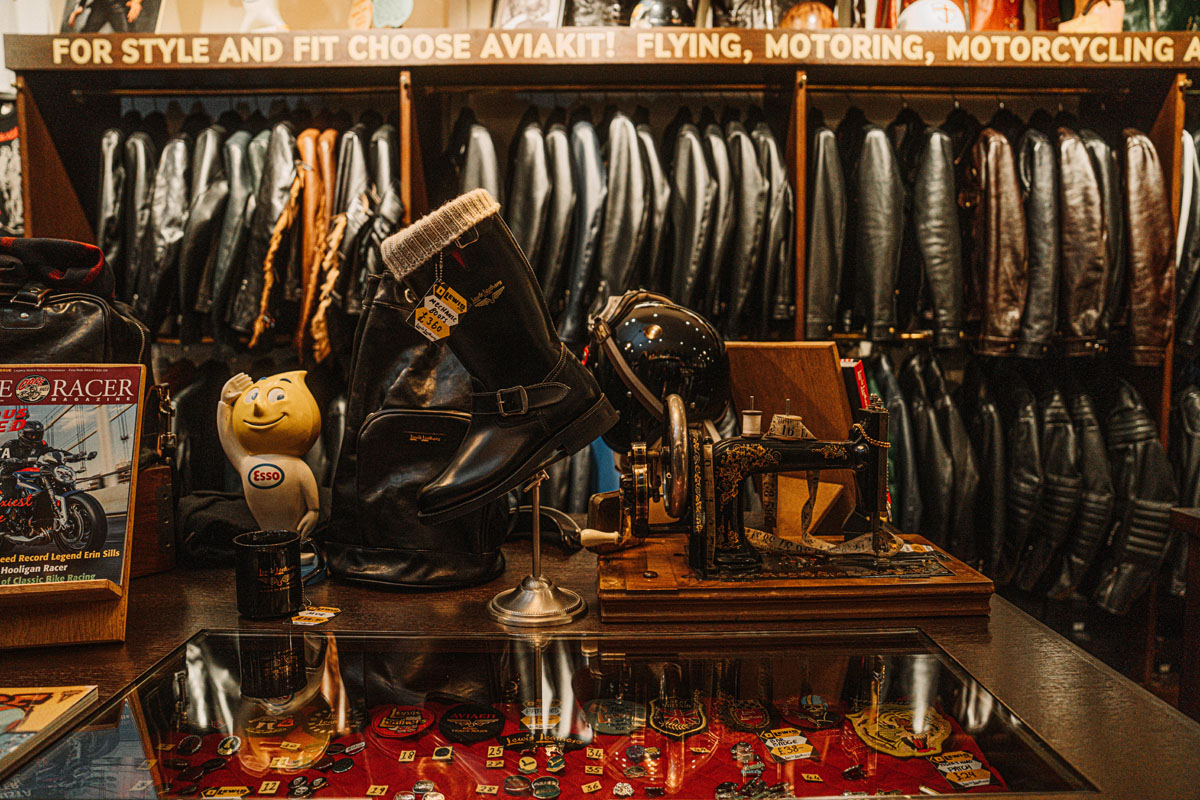
To keep working at Lewis Leathers for as long as I can. I just want to do my job every day and give my best for the brand. Beyond that, I don’t really have any particular dreams.
RUDO: You became the owner of Lewis Leathers in 2003—what do you think is most important to the brand?
Derek: Back in the 1980s, I came across some university textbooks in a second-hand bookshop—books about British youth culture from the 1950s to the 1970s. What they described were youth movements I’d actually lived through myself. These weren’t just interesting academically; they’d shaped my own life. I was amazed that people were even studying these things at university.
That’s when I realised Lewis Leathers had been one of the few brands consistently sought after by young people in Britain from the mid-1950s right up to the present. For any youth group, style and clothing have always been essential elements of identity. In that sense, Lewis Leathers has played a key role in people’s lives over the decades.
But when I first got involved with the brand, I could tell the magic had faded. Owning a Lewis Leathers jacket once meant something—it carried a kind of mystique. It wasn’t just a piece of clothing; wearing one felt like stepping into a world inhabited by heroes. I felt it was my job to recapture some of that magic.
But first, there was a lot I needed to learn. I used to go to the factory three or four nights a week after finishing my day job—tweaking the finer details, making corrections, and working to restore the quality Lewis Leathers was once known for.
Now that it’s been over 20 years since I became owner, I do think I’ve managed to bring some of that spirit back. And that’s why I don’t want to change it. I believe the most important thing is to preserve its integrity—as a brand that makes timeless clothing.
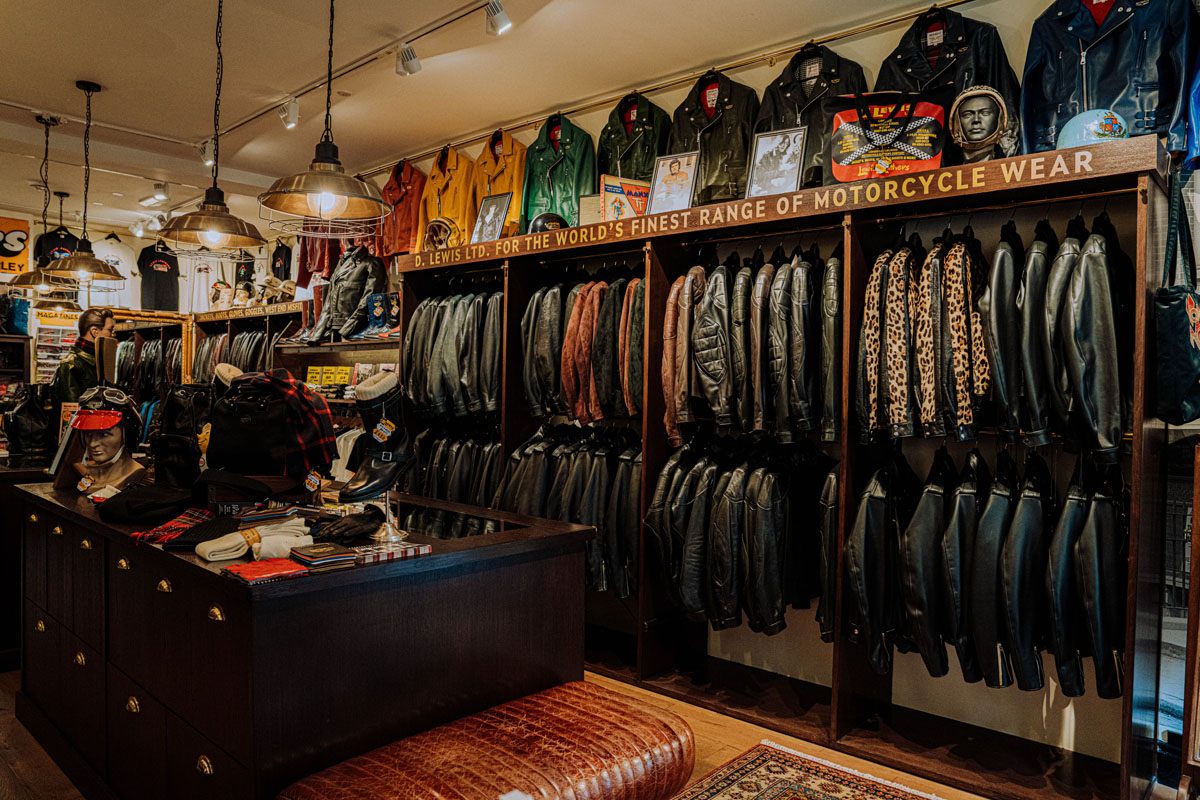
RUDO: Having been involved with Lewis Leathers for so long, is there anyone you currently think is really cool?
Derek: There are plenty, both past and present, but right now the first person who comes to mind is Seiji from Guitar Wolf. He has his own unique vision and a real dedication to rock ’n’ roll. For 37 years he’s pursued this path relentlessly, pouring 100% of his boundless energy into every single live performance. His athleticism outmatches people half his age. And on top of that, he’s decked out in a full leather jacket and leather trousers from the first song right through to the encore. I have nothing but respect for that kind of grit.
RUDO: So, what’s the next goal for the brand?
Derek: Preserving the history remains unchanged. If we do release new items in the future, there’s a possibility of drawing from the Lewis Leathers archive—I keep around 350 pieces stored in the cellar at home—and there are still many products that haven’t yet been brought out. We might introduce new types of leather or linings as well.
That said, since I’ve spent years establishing the brand’s history and foundation, exploring new directions might be a task for whoever becomes the next leader of Lewis Leathers. My role, as I see it, is to continue honouring the tradition just as I always have.
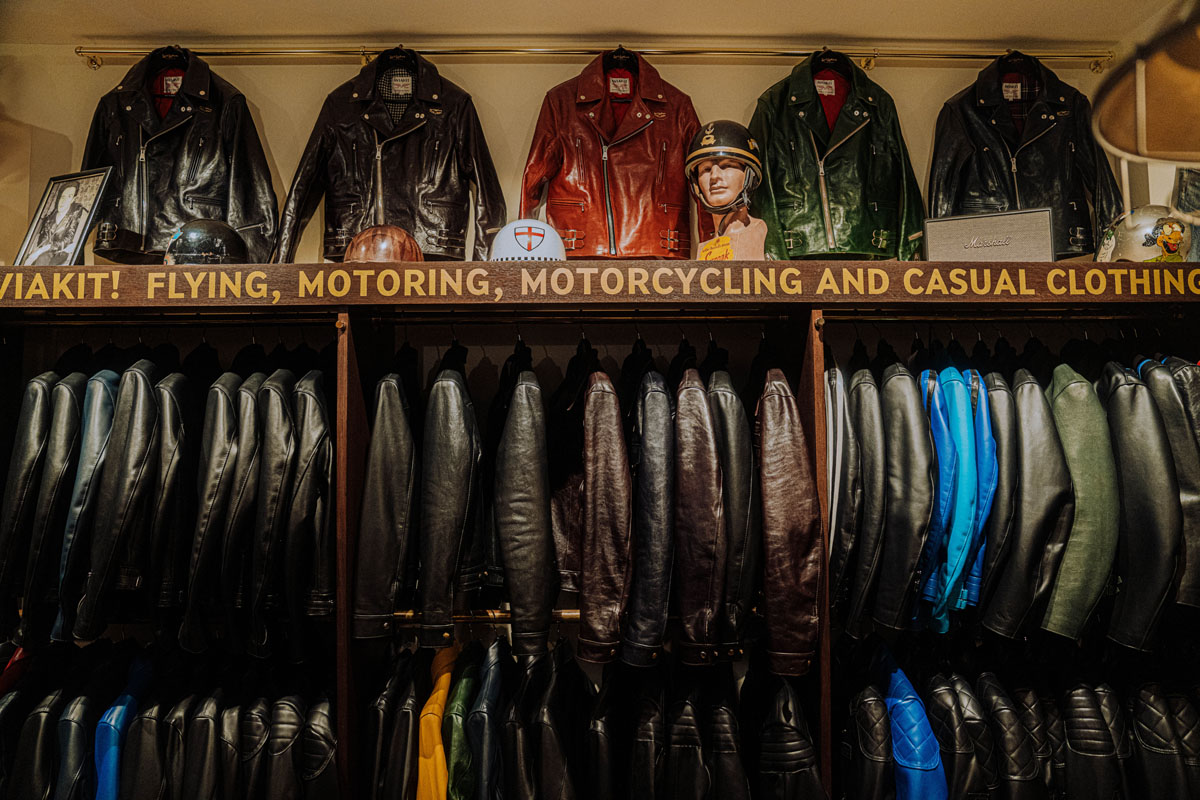
RUDO: Do you have any personal dreams or goals, Derek?
Derek: To keep working at Lewis Leathers for as long as I can. I just want to do my job every day and give my best for the brand. Beyond that, I don’t really have any particular dreams.
My father was a hard worker, and I suppose I’ve inherited that. I just hope I can carry on like this for a long time.
RUDO: Sounds like you’re Lewis Leathers’ biggest fan yourself, then.
Derek: That might just be true! (laughs)
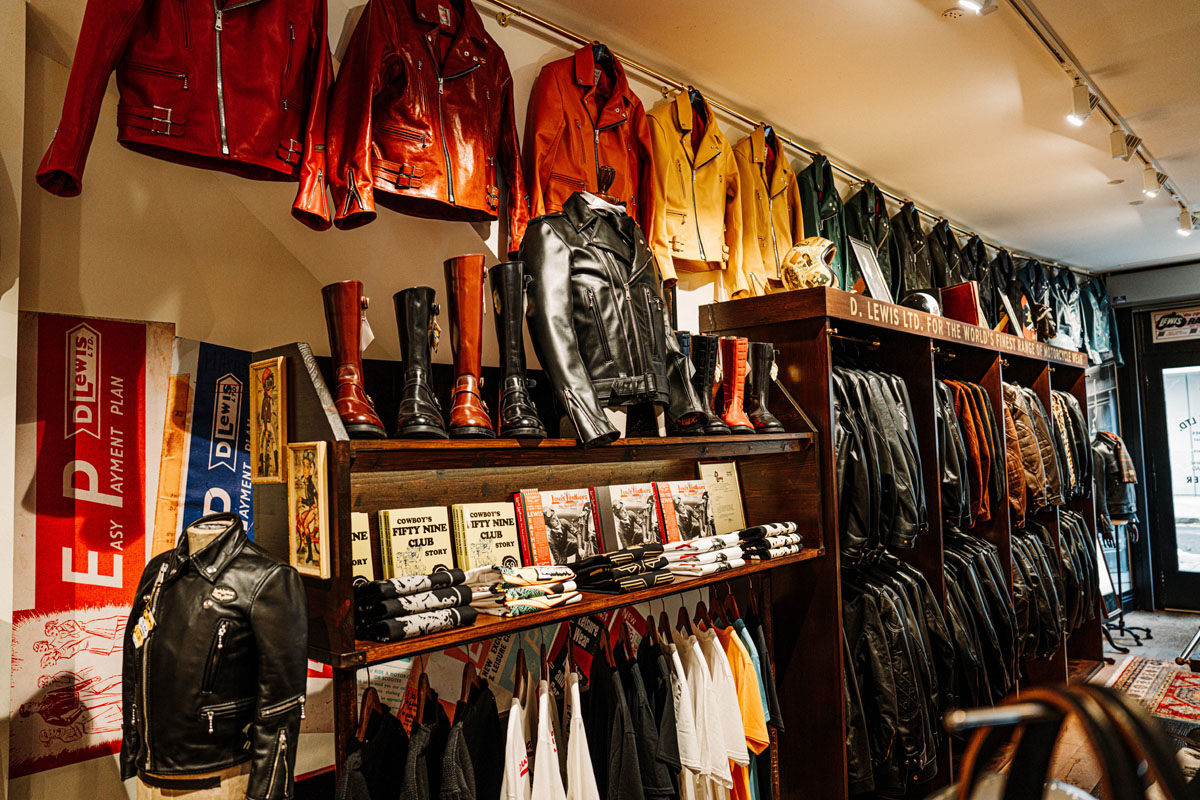
ARCHIVE
Derek has collected over 350 vintage Lewis Leathers jackets. Some bear customisations linked to motorcycling, giving them value not just as garments but as priceless historical artefacts. There are still many unreleased models lying dormant in his collection.
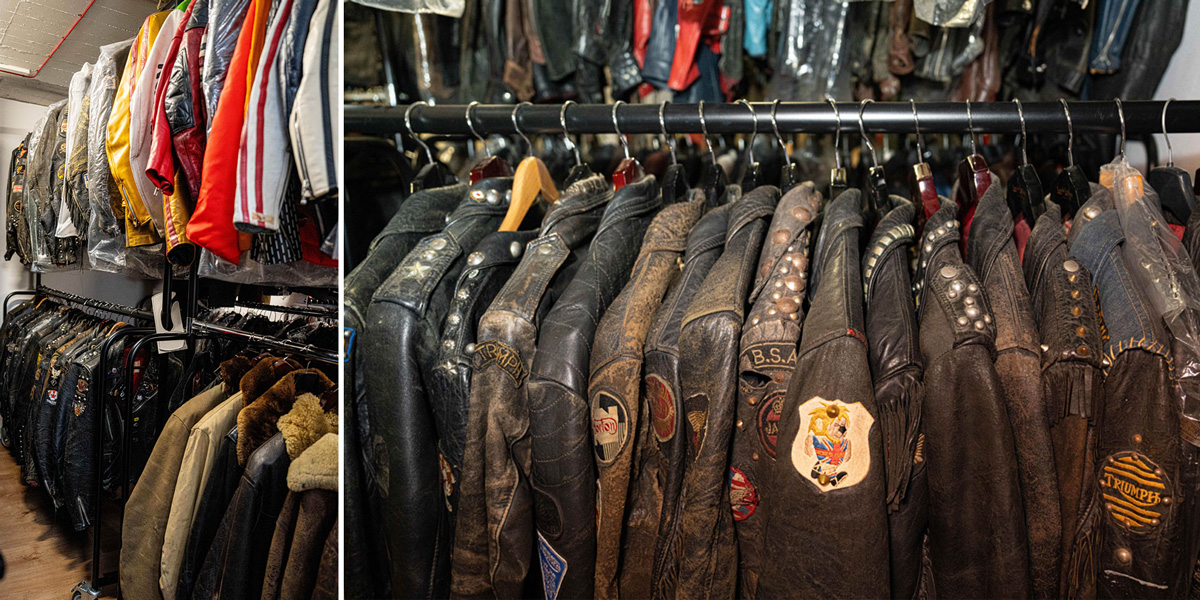
PORTRAIT
A portrait from around 1983–1984 in London. The classic style—Twin Track Bronx Jacket paired with tight trousers and a scarf—now feels refreshingly contemporary. The refined vibe, including the greased-back quiff hairstyle, is distinctly characteristic of British youth culture.
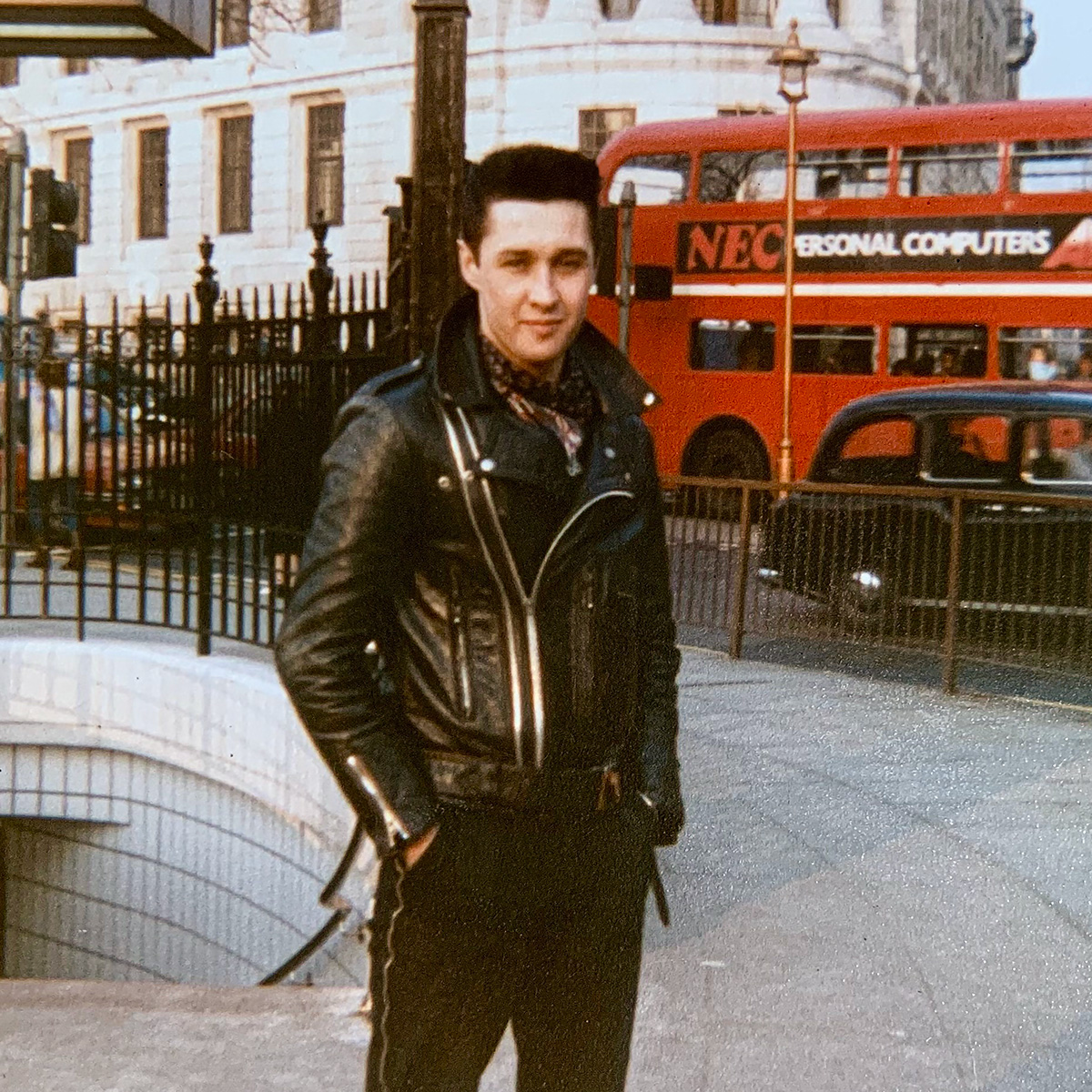
COMICS COLLECTION
I’ve loved reading since I was a child, and American comics remain a cherished part of my collection. Among them, I’m especially fond of Jack Kirby—revered among comic fans as ‘The King of Comics’—who created numerous classics such as The Avengers.
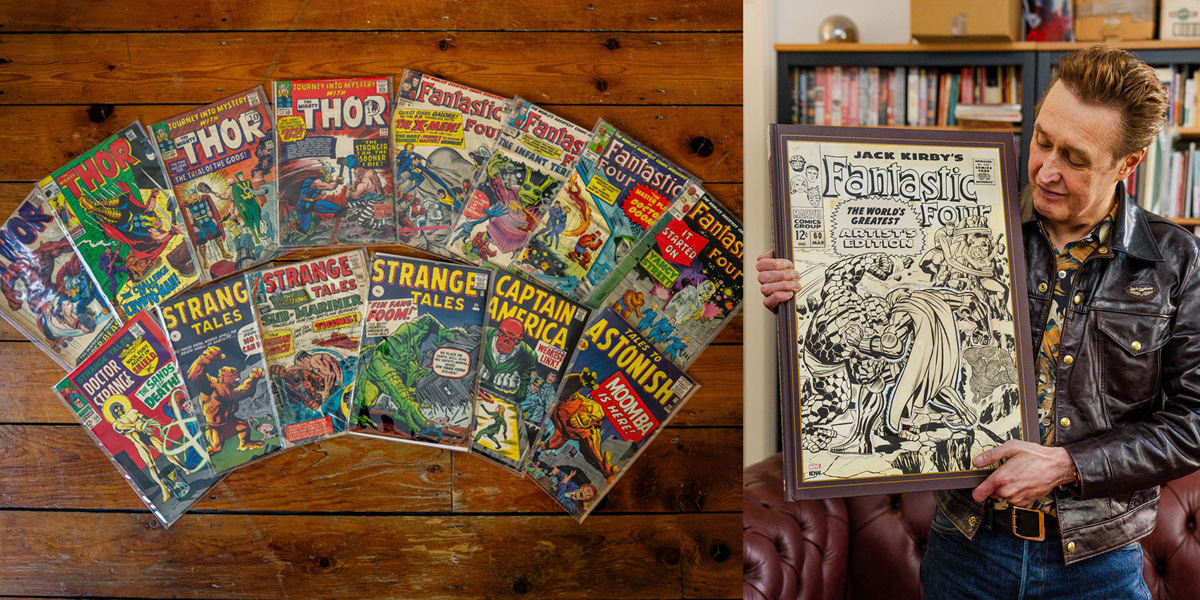
FAVORITE MUSICIANS
Seiji (left) of jet rock band Guitar Wolf and Lee “Scratch” Perry (right), the visionary of the reggae and dub scene, are musicians Derek admires. Guitar Wolf has a close connection with Lewis Leathers, having released collaborative jackets with the brand, while Lee “Scratch” Perry—who made a name for himself in the UK’s vibrant Jamaican immigrant community—is so highly regarded by Derek that he has framed one of his portraits.
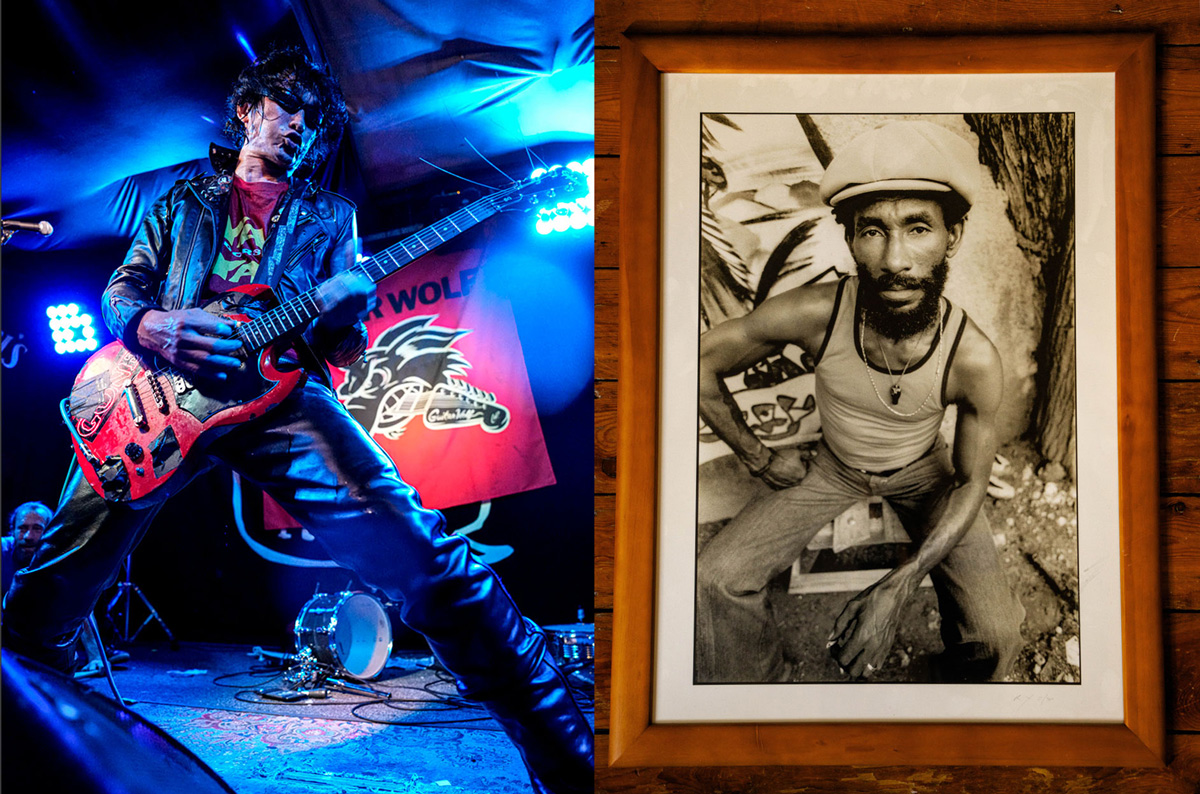
PROFILE: Derek Harris
Born 6 July 1958 in Sussex, England. Derek is the current owner of Lewis Leathers, one of the UK’s foremost leather brands. He first became aware of Lewis Leathers during his childhood. His work in Japan in 1991 marked the beginning of his involvement with the brand. During a turbulent period for Lewis Leathers, he revisited and researched the brand’s archives, helping to reignite its popularity as a leading leatherwear label. In 2003, he became owner and has since continued to protect its heritage while studying its history, which spans over 100 years. In 2017, he supervised and authored WINGS, WHEELS AND ROCK ’N’ ROLL Vol.1, a book chronicling the brand’s history. An avid collector, Derek’s passions also extend to vintage items and comics—collections that many men would admire. A devoted supporter of Manchester United, he recalls: “I don’t even remember where I was living at the time, but I loved the red kit from the moment I saw it. George Best was my hero. I still watch every match.”
